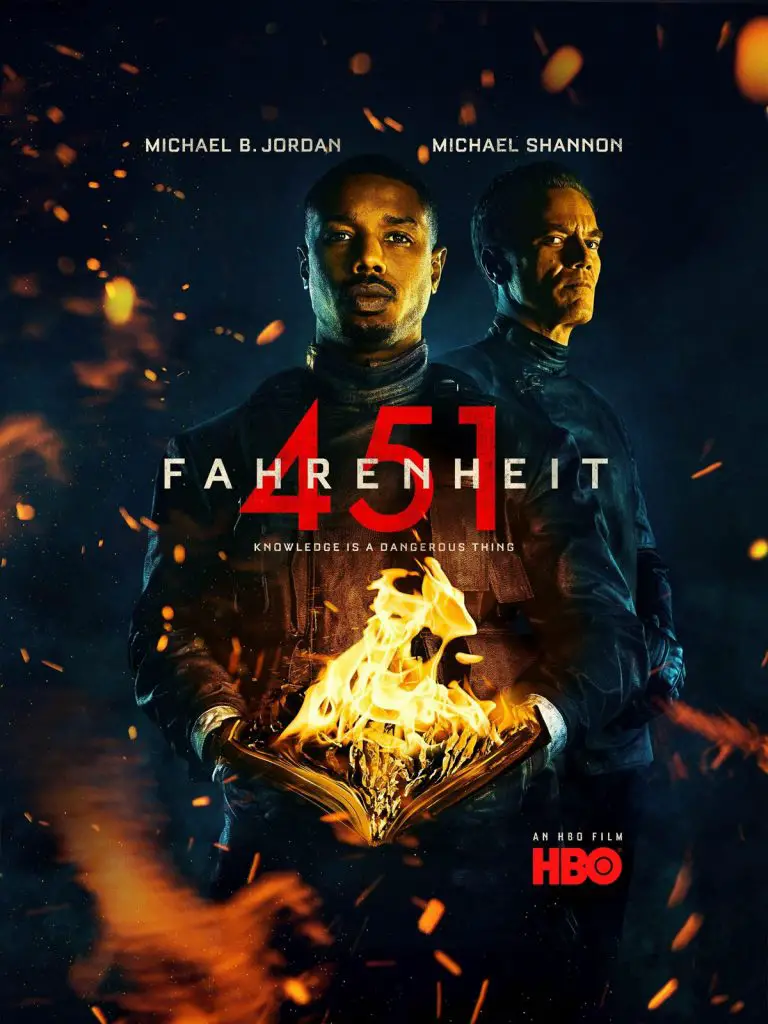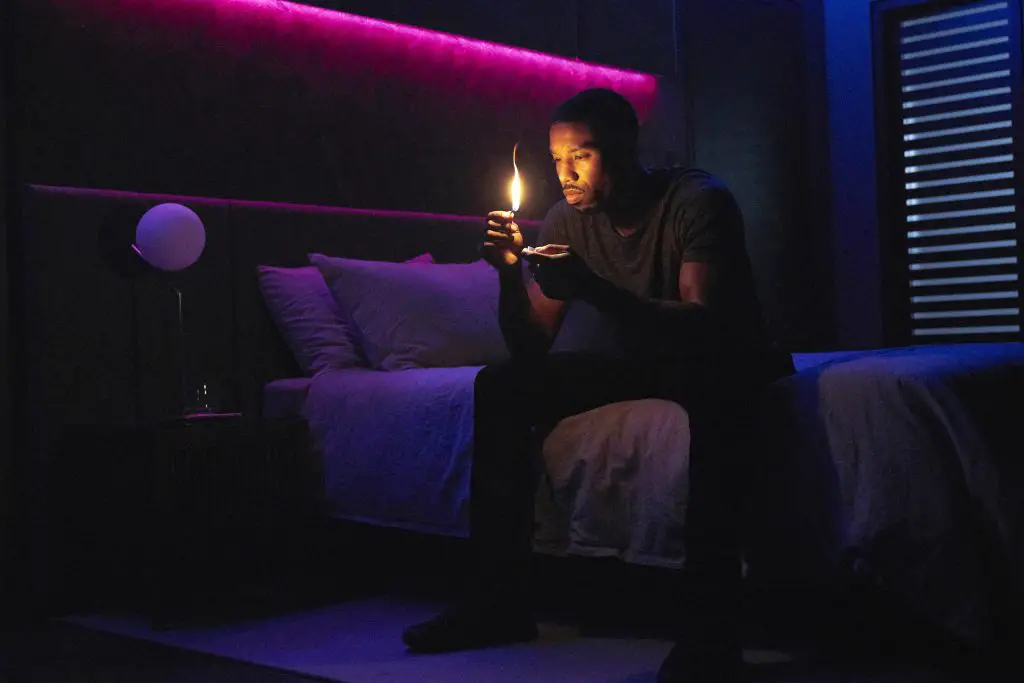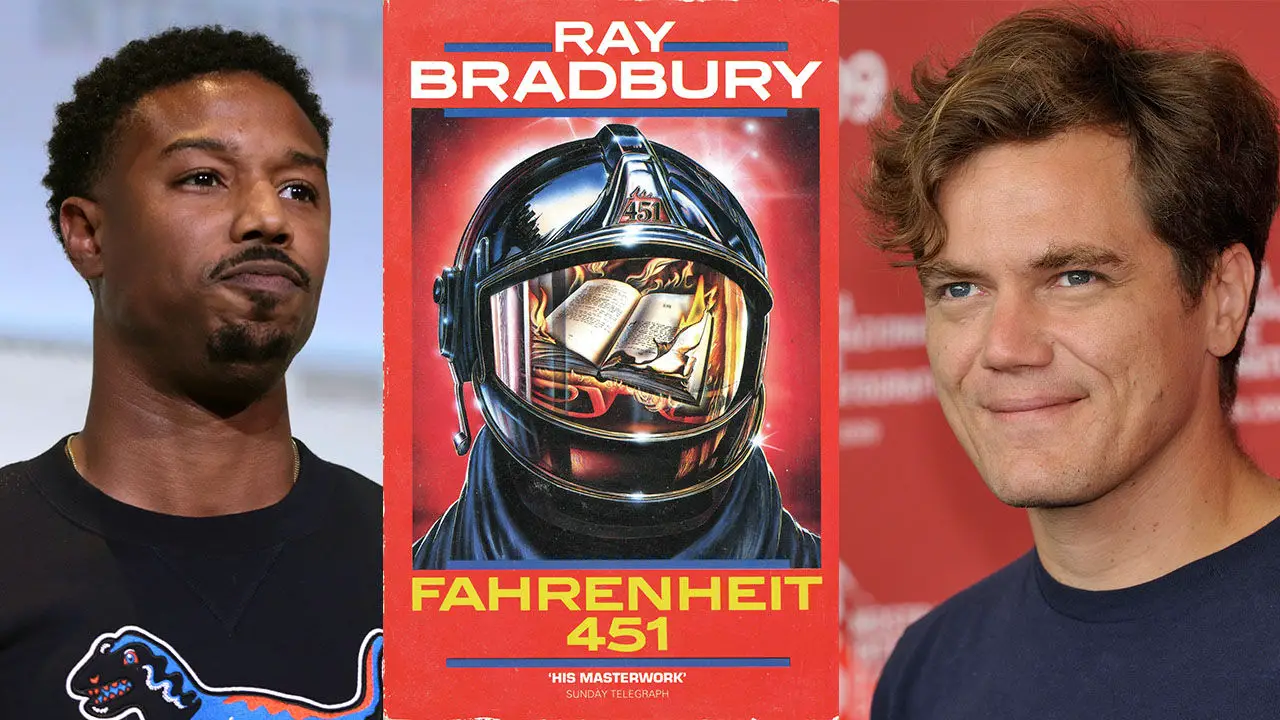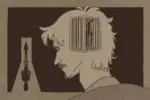Almost every student in grade school read “Fahrenheit 451” by Ray Bradbury at some point for their English class. Like most other pieces of literature, students get mixed feelings about whether or not they enjoyed it. Likewise, adults had mix feelings about HBO’s “Fahrenheit 451” remake, directed by Ramin Bahrani, especially under the political turmoil going on now.
While a fitting movie for nowadays, there is a lot of criticism about the remake itself before it was released on May 19, 2018.
CNN doubted HBO’s “Fahrenheit 451” would live up to the craftiness HBO is known for in its original movies and the film relies too much on the big actors — such as Michael B. Jordan as Guy Montag, Michael Shannon as Captain Beatty and Sophia Boutella as Clarisse — for the success of the movie. Viewers may have the common anticipation for a remake of a movie when a lot of famous actors are in it and the film itself doesn’t give a good impression of them.
All the negativity from news outlets aside, I was excited for HBO’s “Fahrenheit 451” since it was the first dystopian novel I enjoyed. Although I will admit, it does feel a little ironic that a satellite channel made a movie adaptation about a book that warns about the advances and censorship of the government through TV, but if there is to be a channel to do it, I was glad it was HBO.
Moreover, director Bahrani made some twists in the movie to make the story relatable to a contemporary audience. Did his twists live up to or miss Bradbury’s message? Brace yourself. Some spoilers are ahead.
HBO’s remake of “Fahrenheit 451” has more science fiction elements than readers would have recognized in Bradbury’s novel. By adding more sci-fi into the film, many other aspects changed along with it, such how censorship is portrayed in the film and down to the characters themselves.
Before jumping into the differences the movie had, however, I think it’s important to talk about what makes the novel a classic in the first place.
The novel itself is short but packed with themes about the increasing presence of technology in people’s lives influencing their sense of self. It takes place in the futuristic United States when books are banned — since people can get their validated information from TVs — and any remaining books discovered are burned by the Fire Department.
Montag went his whole life without questioning why he was burning books as a fireman until he met Clarisse, a teenager who innocently asks Montag about himself and feels like he is insufficiently answering her questions. Since then, his life took a turn down and eventually Montag becomes a self-thinking person.
Although the movie kept almost all the characters in the novel, Bahrani took his artistic liberty to make some changes, such as the duty of the Fire Department and how a few characters played out in the film. However, there is a reason behind Bahrani’s madness. Indiewire had an interview with Jordan about HBO’s “Fahrenheit 451” that can illuminate why the Bahrani included the differences.
Both the movie and the book got the name “Fahrenheit 451” because, as emphasized in both, 451 degrees is the temperature books catch fire and burn. Bahrani, however, didn’t focus on books themselves too much in his remake.

Physical books are almost novelty nowadays in comparison to eBooks being at your fingertips and in your pocket, no matter where you are. Moreover, eBooks are also another method of how emerging writers get published. In turn, Bahrani shifted towards something that relates to his contemporary audience in the 21st century: hard drives and memory.
While book burning is still in the film, it was interesting to see Montag take his flamethrower and smash a makeshift computer uploading digital files of books to the Dark Nine, the Dark Net of the film. In turn, the resistance force in the film — or Eels — take it upon themselves to make sure that books survive in one form or another.
Bahrani’s shift from physical books to hard drives and files relates more towards the 21st-century audience since nowadays, people rely on the Cloud to always have access to their files. Students have had the anxiety of not uploading their papers to Google Drive or heard people wonder why they haven’t uploaded summer photos to Facebook. Once they’re gone, they’re gone for good.
With this in mind, the Fire Department’s duty in HBO’s “Fahrenheit 451” is to eliminate not just physical books themselves but also the access to what is in the books, which explains why the Fire Department was more aggressive about hunting down unchecked information circulating in society.
I think Bahrani’s shift of physical books to files still lives up to Bradbury’s novel because Bahrani kept the theme of government censorship having a detrimental influence on one’s identity, specifically in Montag’s case, with a more relevant twist to his viewers by using all access to books as his symbol for the people’s access to knowledge.

Bahrani also took the artistic liberty to make HBO’s “Fahrenheit 451” relatable to his audience today in the women around Montag, such as the old woman and Clarisse, who are both Eels and make Montag question what he is doing.
When Montag is called to burn down a library in the movie, he saw the old woman decide to burn with her books rather than live on. In both the book and the movie, that’s his realization that the Eels may understand something the Fire Department and the government of the United States fear.
I think Bahrani exaggerates this crucial scene — and probably the best in the movie — in HBO’s “Fahrenheit 451” more than Bradbury did in his book while still honoring his theme. In the world of HBO’s “Fahrenheit 451,” the old woman would rather die herself than lose her identity to the Fire Department, and it shocked Montag into wondering what was in the books that would cause someone to do that.
Clarisse, however, probably had the biggest change out of all Bahrani’s work. Instead of being 17 years old, she’s probably older than Montag. Instead of dying in the middle of the novel, Clarisse recruits Montag to help the Eels in the film.
While in the novel, 17-year-old Clarisse plants the questions that set Montag in his course of becoming a self-thinking person, it is the experienced Clarisse in the film that nourishes the curiosity in Montag that gets him reading and fighting against the agency he worked for over the last 16 years.
With the political turmoil now, I think Bradbury would understand why Bahrani made the changes he did. Rotten Tomatoes users may not have enjoyed it as much and remind people to read the book for a better story, but the fears from 1953 were different than now in 2018 and Bahrani’s goal in HBO’s “Fahrenheit 451” was to honor the themes of Bradbury in a contemporary setting, which he did with the few alters he made.

















